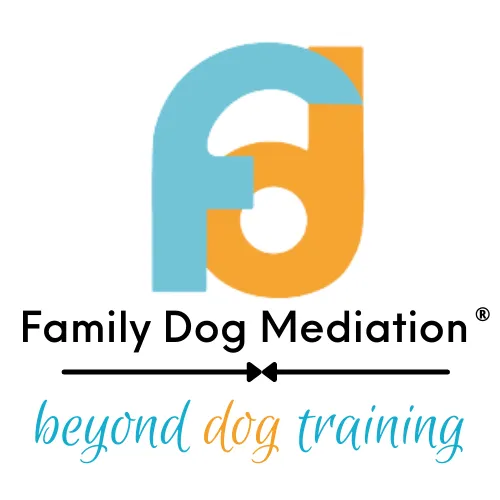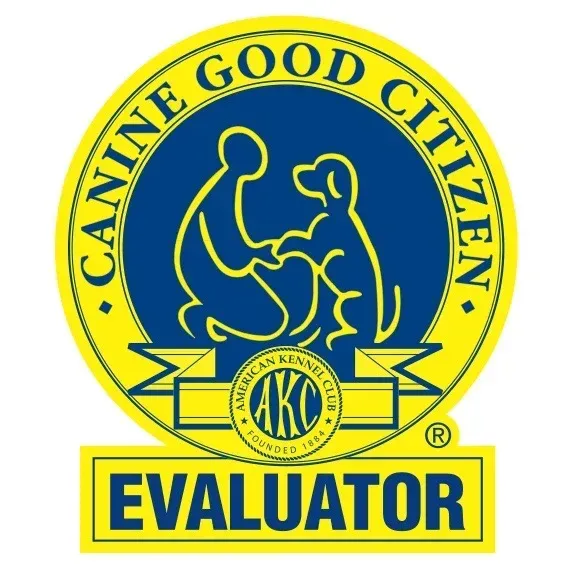I'll help you train your own service dog!
What is Service Dog Training?
As a Service Dog Coach (SDC), I help people with disabilities train their own dog to assist them as a service dog. Service dogs dogs specifically trained to perform tasks that help people with disabilities as defined in the Americans with Disabilities Act (ADA).
The first milestone for a service dog and their guardian is passing the Canine Good Citizen test. Once your dog is CGC certified, we will have a very good idea if the dog is a good candidate for service dog work. Then we will focus our training on teaching your dog their tasks to assist you.
I am a Canine Good Citizen (CGC) evaluator and can help you and your dog prepare for the test if you and your dog haven’t taken it before.
Before You Get Started, Do You Know This?
A Service Dog is
A a dog who is trained to perform tasks to support their guardian with a disability. They have public access with their human guardian only and can go anywhere the public is allowed. Some exceptions may include specific areas in a hospital like a surgery room.
An Emotional Support Dog is
A dog who helps with issues like anxiety disorders, and while they do provide comfort to their guardian and have more rights than a pet dog, they do not have full public access. They are no longer allowed on planes, but may be allowed in rental housing with proper documentation.
A Therapy Dog is
A dog who is trained to go places such as hospitals, nursing homes, schools, etc... to provide comfort to a variety of people (instead of just one guardian, which is the case with a service or emotional support dog). Therapy dogs do not have public access except to places they are invited to visit to provide comfort.
What do I do next?
First, step review these checklists
Human Checklist
18 years of age or older. Exceptions may be made at the discretion of the trainer on a case by case basis.
Able to attend training sessions for 1 year or longer.
Sessions are held in the client’s home (within my travel area), virtually on Zoom, or in public spaces like a park (when it’s appropriate).
Able to commit daily time to practicing with your dog between session appointments.
Able to commit to re-evaluations and check-ins once a year or more after your dog becomes a service dog if they are successful with the training.
Have a disability as defined by the Americans with Disabilities Act.
Aware that you may end up with a dog that can only help at home or in places pet dogs are allowed. Up to 50% of service dog candidates in programs are not able to complete training for public access.
Willing to wait until I evaluate your dog’s suitability and help you train your dog foundation skills before putting service dog identification on your dog and before taking your dog to places pet dogs are not permitted.
Have support and a signed letter from your licensed healthcare provider for use of a service dog.
Have a support network and/or a co-trainer.
Have support from your entire household.Aware that you may need to retire your service dog at any given time due to change in behavior, medical conditions, or other factors and a commitment to keeping the dog after they’ve retired.
Dog Checklist
Medically and physically healthy.
No history of aggression towards dogs, people or other animals.
No history of any serious behavior problems, like fear or separation anxiety.
Not on any behavioral medications.Has passed the Canine Good Citizen (CGC) test within 2 months of starting service dog training.
At least 2 years old or older.
What To Expect
Step 1: We begin by scheduling the 60 minute virtual initial consultation. Before the virtual consultation I will send a behavior intake form, a services & agreement, and other paperwork.
Step 2: We conduct the virtual initial consultation and discuss whether it is appropriate to begin training your dog for service work. If your dog has not passed the Canine Good Citizen Test recently or at all then we’d discuss the training process to prepare for the test. FEE is $285.
Step 3: After the virtual initial consultation, follow-up sessions are 60 minutes each. Follow-up sessions will focus on training for service work if your dog is suitable or foundation skills to work towards service work or the Canine Good Citizen test.
Step 4: Follow up support via phone and email is free and included once we start working together.
Common Questions Clients Ask Me
FAQ:
What if my dog is under 2 years of age but I’m interested in service dog training?
I’d recommend focusing on basic manners training as many of the test elements for the CGC test are advanced versions of basic manners behaviors.
Can my rescue dog be trained as a service dog?
I work with any and all breeds of dogs. As long as your dog is suitable in terms of temperament, behavior, age, physical condition, etc... then they can do the service training.
How long will training take?
The short answer is it depends!
The pace and length of training will depend on each individual dog. It’s important that the dog enjoys the training and is inclined to do the work.
How do you assess whether a dog is suitable to be a service dog or not?
During the virtual initial consultation we will discuss your dog’s behavior history, training history, how they react in specific situations and environments, and more.
Additional Resources
pawsome pupstars
Office:
118 8th Avenue
Brooklyn, NY
Email:
pawsomepupstars@gmail.com
Site: www.pawsomepupstars.com/







